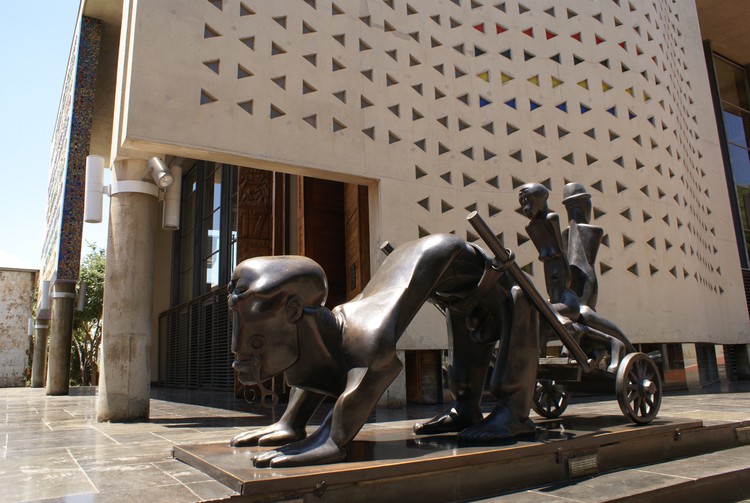State to appeal landmark Gatherings Act ruling
Police believe giving notice allows them to “facilitate the right to protest”

A landmark ruling by the Western Cape High Court last month, which declared part of the Regulation of Gatherings Act unconstitutional, is to be challenged by the State and the Minister of Police in the Constitutional Court.
On 24 January, Judge Thandazwa Ndita ruled that the section of Regulation of Gatherings Act 205 of 1993, which criminalises the gathering of more than 15 people if no notice is given, was invalid and unconstitutional.
The case was brought by the Social Justice Coalition (SJC) against the state and the Minister of Police. Equal Education, the Open Society Justice Initiative, and The UN Special Rapporteur were admitted as friends of the court.
In September 2013, 21 members and supporters of the SJC were arrested and charged with contravening the Regulation of Gatherings Act (RGA). They had chained themselves to the railing of the Civic Centre in Cape Town, demanding to see Mayor Patricia de Lille.
In February 2015, ten members of the group, identified as the conveners of the protest, were convicted under the Act for not submitting a notice for their protest to the City. The remaining 11 were acquitted.
The SJC appealed the convictions in 2016. One of the convicted SJC members, Nolulama Jara, died in August 2015, but Jara’s name is still listed in the court documents.
In her ruling, Ndita set aside the convictions of ten SJC members. She said the criminal sanction in the Act was “disproportionate to the offence”.
In the papers submitted on 13 February, the Minister of Police said that Ndita’s order could only come into effect once it has been confirmed by the Constitutional Court.
The Minister maintains that the Act does not limit or infringe on the right to freedom of assembly, that giving notice was a “simple and straightforward procedure”, and that it ensured protest “takes place peacefully and with due regard to the rights of others”.
The Minister said notice allows the state to adequately prepare and facilitate the right to protest, and makes the deployment of police easier “in light of the scarcity of police resources”.
Axolile Notywala of the SJC told GroundUp that the organisation had also approached the Constitutional Court to have Ndita’s decision upheld. “We are still waiting for a directive from the Court.”
Should Ndita’s ruling be upheld by the Constitutional Court, it will have important implications for civil society activists, poor communities and other citizens engaged in protest action against the state or powerful private organisations.
Support independent journalism
Donate using Payfast

Don't miss out on the latest news
We respect your privacy, and promise we won't spam you.
Next: Overcrowding becoming “the norm” in some Western Cape schools
Previous: Foreshore development violates Cape Town’s transport policy, say experts
Letters
Dear Editor
The section in the Gatherings Act of 1993 which is referred to does not, as stated in the article, criminalise the gathering of more than 15 people if no notice is given, but provides that the organiser who fails or refuses to give the required notice, commits an offence. Protestors who attend a gathering where no notice is given are still protected under the law and mere attendance is not an offence in itself.
Journalists often refer to the Gatherings Act as an "apartheid law". However, the Act has a very interesting history. It is progressive legislation following on the Goldstone Commission in the early nineties and signals an important move away from the draconian security laws of the apartheid era. Goldstone looked at various international practices to create a framework within which the right to gather and protest could be exercised effectively- this was done in the era of the 1993 Interim Constitution.
The Act affords legal protection to organisers and protesters against undue infringement of their rights if they follow the Act's simple processes. Even though some provisions of the Act with regards to police powers may need to be revisited, organisers should realise that the Act is an effective tool to exercise the right to protest if used correctly.
By following the notice process, an organiser puts into motion a mechanism that provides powerful legal protection to non-violent protests.
© 2018 GroundUp. 
This article is licensed under a Creative Commons Attribution-NoDerivatives 4.0 International License.
You may republish this article, so long as you credit the authors and GroundUp, and do not change the text. Please include a link back to the original article.
